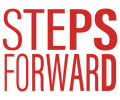Families and Advocates
Student support is as unique as each individual, family, and community. But most importantly, it is dynamic and reflects the active constantly changing lifestyle of an engaged student and young adult.
BEFORE STARTING POST-SECONDARY EDUCATION
Students with developmental disabilities completing high school have typically had few opportunities to make decisions and to independently explore the world around them. The great majority of them have been educated in learning environments defined by their disability and assigned to classrooms and activities exclusively with others who have developmental disabilities.
When thinking about whether inclusive post secondary education is the right choice for your family member, the first step is to evaluate what inclusion means to them and to you.
Inclusive post secondary education is about opening up opportunities for students to try new things in the same places and in the same ways as any other student on campus. These opportunities are reflective of the academic civic and social interests of learners in an active vibrant environment.
To be successful they will need your support before, during, and afterwards. Whether your family member is in elementary school, completing high school, or finished some time ago, now that you and they are thinking about post secondary education it is the perfect time to start exploring what an inclusive life could look like.
You can support your family member to seek out inclusive opportunities to connect with other people who share their interests by checking out community organizations community learning and social networking opportunities.
When thinking about whether inclusive post secondary education is the right choice for your family member, the first step is to evaluate what inclusion means to them and to you.
Inclusive post secondary education is about opening up opportunities for students to try new things in the same places and in the same ways as any other student on campus. These opportunities are reflective of the academic civic and social interests of learners in an active vibrant environment.
To be successful they will need your support before, during, and afterwards. Whether your family member is in elementary school, completing high school, or finished some time ago, now that you and they are thinking about post secondary education it is the perfect time to start exploring what an inclusive life could look like.
You can support your family member to seek out inclusive opportunities to connect with other people who share their interests by checking out community organizations community learning and social networking opportunities.
DECIDING WHAT TO STUDY AND COURSE SELECTION
Many students have big dreams when they start going to college or university. They plan on becoming doctors, lawyers, scientists, politicians, teachers, lab technicians, etc. The list goes on and on. Not all students will end up in their fantasy career but having that dream will put them closer to the future life they envision for themselves.
When a applicant tells us they want to be a neurosurgeon, orchestra conductor, or broadcaster on major TV sports channel we are thrilled. They are not the only students starting their studies with big dreams. And like many other students they starting down one path they find they end up exploring other interesting opportunities that were not part of their original plan. The important thing is to keep them dreaming big and broadly; to keep them on that bigger than life pathway to their future. Facilitators will work with them, and you, to support them to go as far as they can in becoming successful students.
Ideas for what to study:
Interesting 1st year course ideas:
When a applicant tells us they want to be a neurosurgeon, orchestra conductor, or broadcaster on major TV sports channel we are thrilled. They are not the only students starting their studies with big dreams. And like many other students they starting down one path they find they end up exploring other interesting opportunities that were not part of their original plan. The important thing is to keep them dreaming big and broadly; to keep them on that bigger than life pathway to their future. Facilitators will work with them, and you, to support them to go as far as they can in becoming successful students.
Ideas for what to study:
- If you went to post secondary, talk with your family member about what you studied and the things you liked doing on campus
- Encourage them to go for coffee with other people in their lives who have attended or are attending post-secondary education
- Include in your students IEP the opportunity to attend the university tours and info sessions when the other students go
- Call a campus facilitator to work with you to attend a campus tour
- Make a list of what they liked to study in high school and what their hobbies are
- Find out what it is about their dream job that thrills them.
Interesting 1st year course ideas:
- History: The Creation of the Medieval World
- Anthropology: Folklore in Contemporary Society
- Exercise Science, Physical & Health Education: The science of Batman
- Astronomy: The search for Life in the Universe
- Womens' Studies: Bodies out of Bounds
SOCIALIZNG ON CAMPUS
This is a significant part of campus engagement and student development. Students connect with people who have similar passions and interests. For many students the people they get to know through these extra-curricular activities, sports, and social occasions evolve into life long connections leading to new activities, communities, potential employment, and friendships,
Frequently these activities will happen in the afternoon, evening, or weekends. Many families struggle with finding the balance of supporting their family member to participate in these activities and how this affects the schedules of others in the family or household.
It is extremely important for families to have a willingness to explore how to make it possible to say yes to supporting engagement with these activities, and to work with the inclusion facilitators to make it possible.
Some clubs and activities students have been involved with:
Frequently these activities will happen in the afternoon, evening, or weekends. Many families struggle with finding the balance of supporting their family member to participate in these activities and how this affects the schedules of others in the family or household.
It is extremely important for families to have a willingness to explore how to make it possible to say yes to supporting engagement with these activities, and to work with the inclusion facilitators to make it possible.
Some clubs and activities students have been involved with:
|
|
CAREER CHOICES AND LIFE AFTER GRADUATION
How the alumni will engage in life, and what activities, interests and careers they will have, will look different for each individual as will how that is supported.For some alumni support will be minimal and infrequent, while others may require more support to consolidate the inclusive life they started to lay down the foundation for at college/university.
Today, we have the expectation that people with developmental disabilities will find gainful employment. While historically that has not been the case, today we are redefining what the term gainful means. Previously "gainful employment" referred to individual working to increase their personal wealth or resources. More and more it is coming to mean where one is not only paid for the work they do, but also a place where they find community and are valued for their contributions.
Adults with developmental disabilities entering the workforce, are generally expected to work in limited entry level positions with no hope of advancement. Students supported to live an inclusion, coherent, life are challenging those assumptions and seeking positions which are pathways to developing a career, community and advancement.
Today, we have the expectation that people with developmental disabilities will find gainful employment. While historically that has not been the case, today we are redefining what the term gainful means. Previously "gainful employment" referred to individual working to increase their personal wealth or resources. More and more it is coming to mean where one is not only paid for the work they do, but also a place where they find community and are valued for their contributions.
Adults with developmental disabilities entering the workforce, are generally expected to work in limited entry level positions with no hope of advancement. Students supported to live an inclusion, coherent, life are challenging those assumptions and seeking positions which are pathways to developing a career, community and advancement.
Leaving behind an environment dedicated to the student's well being, and where they can engage with peers their age to pursue common interests, can be very daunting for any student, but especially for students with developmental disabilities and their families.
To get the most out of inclusive post secondary education, and to have in place some of the essential elements for the life that the student hopes to start developing as they move into the next phase of their life, it is essential to begin thinking about what comes after college or university as early as the end of a student's first year.
Incidentally, this dovetails with the shift in thinking that campuses are undergoing. Until recently, it was thought that students should declare their major no later than the beginning of 3rd year. Research is now indicating that for the student to have a greater chance of success, they should define their academic goals as early as the beginning of 2nd year.
Like other students who are graduating, consolidating the elements of housing, career, community, and employment requires on-going experimenting and research. The students who we support will have the advantage of having done some of that researching and experimenting while at college/university and will be better prepared to embark on an inclusive life with the support of families, advocates, and friends.
To get the most out of inclusive post secondary education, and to have in place some of the essential elements for the life that the student hopes to start developing as they move into the next phase of their life, it is essential to begin thinking about what comes after college or university as early as the end of a student's first year.
Incidentally, this dovetails with the shift in thinking that campuses are undergoing. Until recently, it was thought that students should declare their major no later than the beginning of 3rd year. Research is now indicating that for the student to have a greater chance of success, they should define their academic goals as early as the beginning of 2nd year.
Like other students who are graduating, consolidating the elements of housing, career, community, and employment requires on-going experimenting and research. The students who we support will have the advantage of having done some of that researching and experimenting while at college/university and will be better prepared to embark on an inclusive life with the support of families, advocates, and friends.

